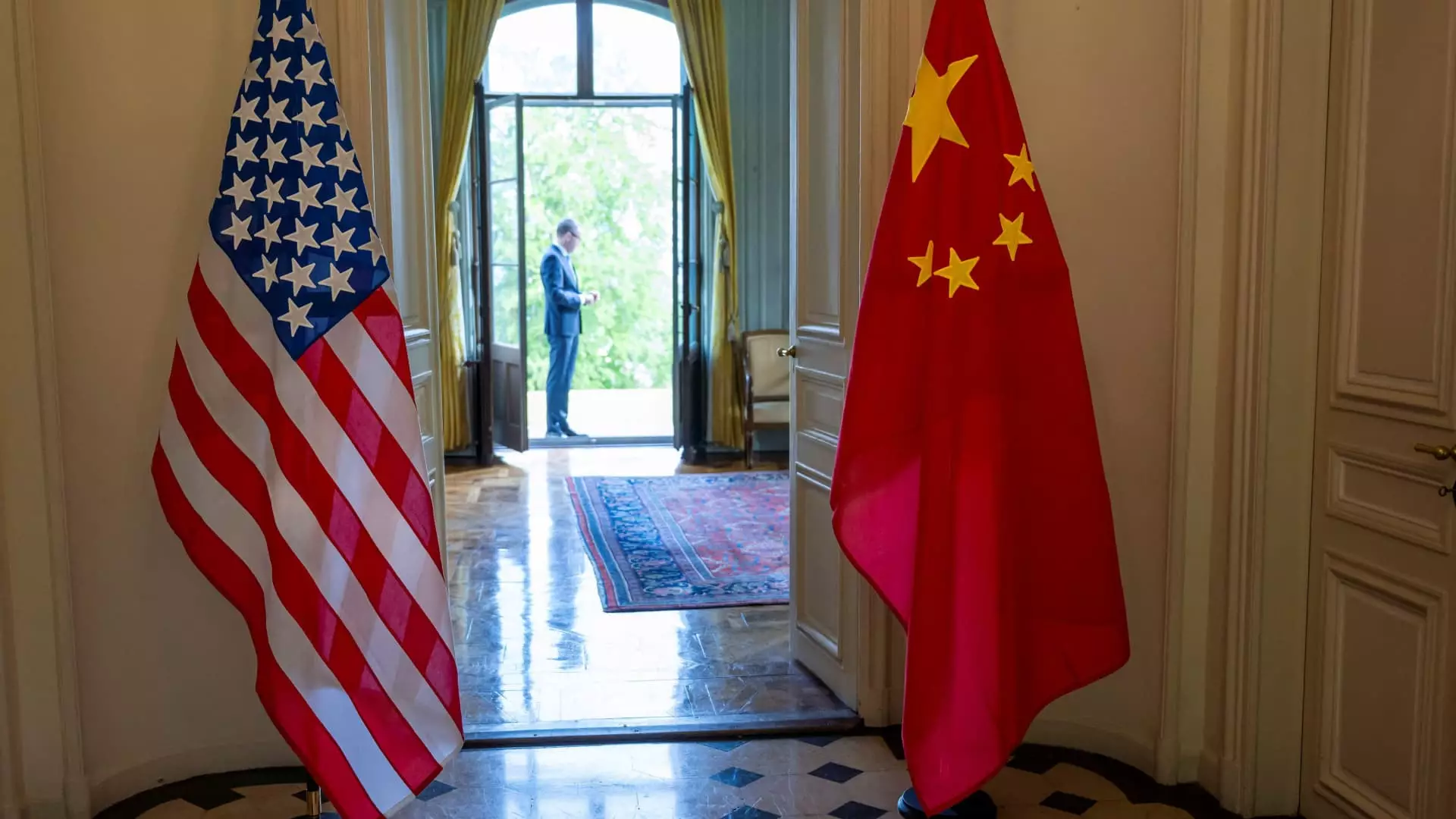In an era defined by economic interdependence, the stalling of U.S.-China trade talks represents not merely a setback for both nations, but a critical juncture that underscores the fragility of international diplomacy. Treasury Secretary Scott Bessent’s recent statements indicating that negotiations are “a bit stalled” symbolize a troubling reality: leaders of the world’s two largest economies appear to be locked in a stalemate, reflecting deeper issues that transcend tariffs and trade policies. This impasse is worrying, as it not only threatens economic stability but also propels both nations into a zone of increased confrontation and uncertainty.
The offer of a breakthrough in Switzerland, with an agreement to roll back tariffs for just 90 days, reeked of a temporary fix rather than a robust solution. It raises important questions about the long-term efficacy of diplomatic negotiations that feel more like appeasement than genuine compromise. The current trajectory suggests that without meaningful engagement from both leaders, the window for substantial policy shifts may continue to narrow, leaving the global economy vulnerable to shocks and disruptions.
High-Stakes Communication: The Role of Leadership
At the heart of this diplomatic deadlock lies an undeniable truth: meaningful dialogue is imperative, and the absence of direct communication between President Trump and President Xi Jinping exacerbates the situation. Bessent’s assertion that both leaders need to “weigh in with each other” highlights the necessity of their personal involvement to navigate the complexities of trade. Yet, one cannot help but notice the irony of two global superpowers hesitating to talk openly, risking escalation due to misinterpretations and missed cues.
Recent statements indicate that Trump desires more dialogue, yet China’s willingness to engage hinges on the assurance that no unpleasant surprises will emerge during these conversations. This moment of diplomatic hesitance exemplifies the toxic environment that has developed, creating a climate rife with suspicion and unrest. It is clear that both nations are playing a high-stakes game, yet the rules remain unclear, fostering an atmosphere steeped in tension rather than cooperation.
Technological Tensions and Unfulfilled Expectations
Adding another layer of complexity to the dialogue is the ongoing tug-of-war over technology and trade restrictions, particularly in the semiconductor industry. While the U.S. has ramped up restrictions on chip exports to China, Beijing’s response has been tepid at best, failing to meet American expectations regarding the easing of rare earths’ restrictions. The disconnect between the two nations is glaring, with each side appearing unable or unwilling to fully commit to addressing the underlying issues that have provoked these trade tensions.
China’s insistence on upholding its national sovereignty in regulating exports, framed within a context of global stability, might resonate domestically; however, this rhetoric does not alleviate the growing concerns within the United States regarding its technological independence. The competition for supremacy in technology not only accentuates economic rivalry but also encapsulates the dramatic shifts in geopolitical alignments at play. With both nations well aware of the stakes involved, there is an urgent need for a recalibration of strategies and expectations.
Human Impact and Geopolitical Consequences
Beyond the economic implications, these trade disputes are shifting into areas with far more considerable humanitarian concerns. For example, U.S. moves to revoke visas for Chinese students signal a broader trend toward alienation and isolation. This decision is deeply unjust, as it targets the future of young individuals who aim to bridge cultural and academic divides, adversely affecting not only personal lives but also the collective growth potentials of both nations. The deteriorating atmosphere threatens to derail years of positive exchange and cooperation in academia and innovation.
As Bessent pointed out, the need for a direct dialogue is paramount; however, the political environment must become less hostile for such conversations to yield fruitful results. Both leaders must consider the human ramifications of their economic policies and choose engagement over isolation. It’s time for a radical shift in approach—one that emphasizes collaboration rather than confrontation, one that recognizes the shared responsibilities of leading the world towards economic stability and a sustainable future.
The current rhetoric and actions surrounding U.S.-China trade talks neutralize our shared potential into a resurgence of distrust. The two nations must actively seek a renewed framework of dialogue and cooperation—anything less risks a bleak future for countless individuals who will bear the brunt of their leaders’ failures.


Leave a Reply